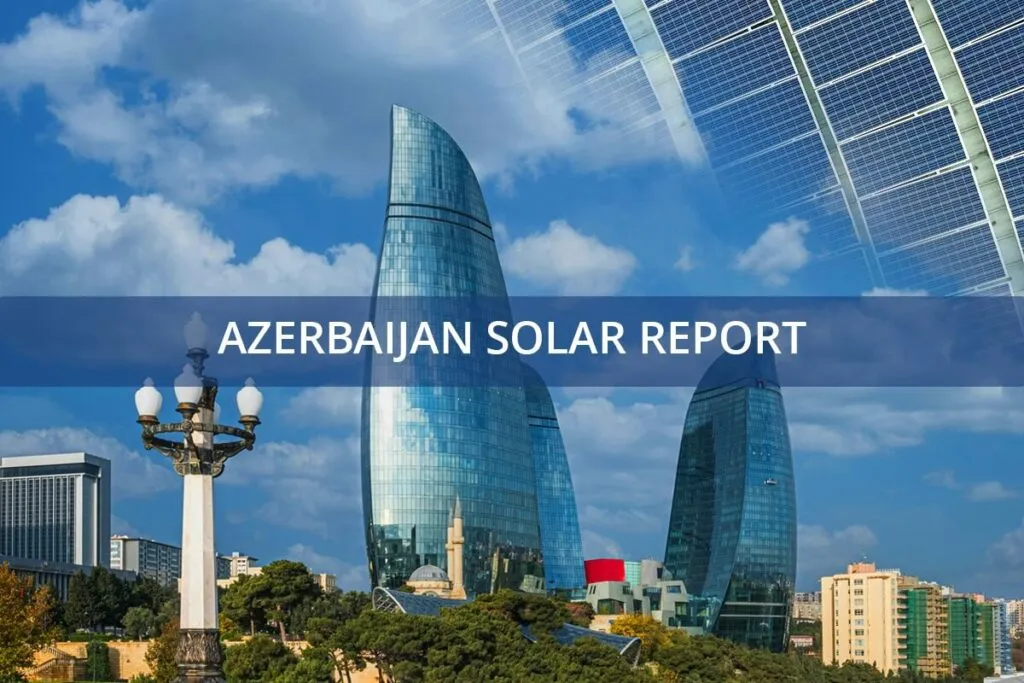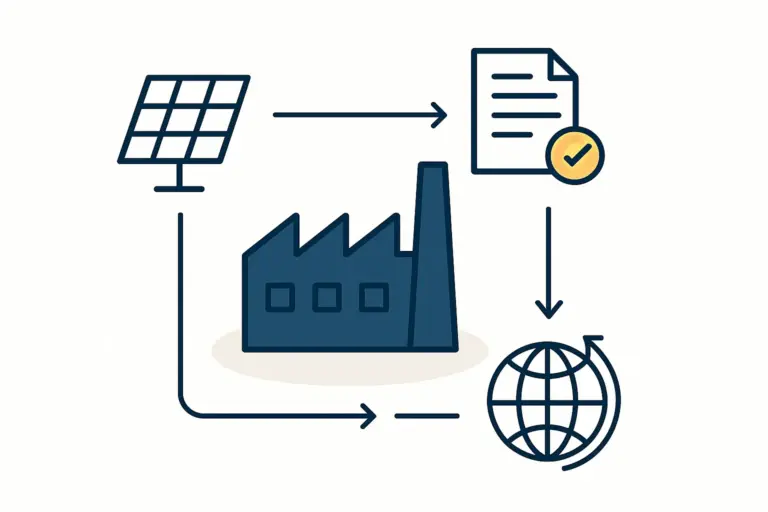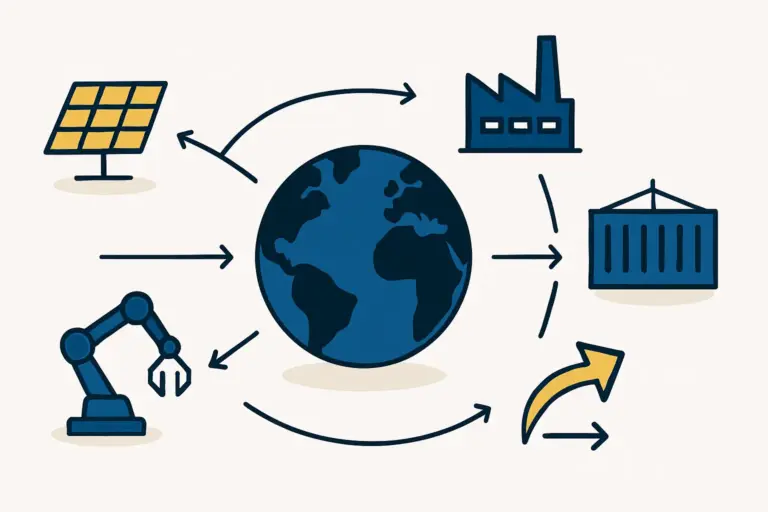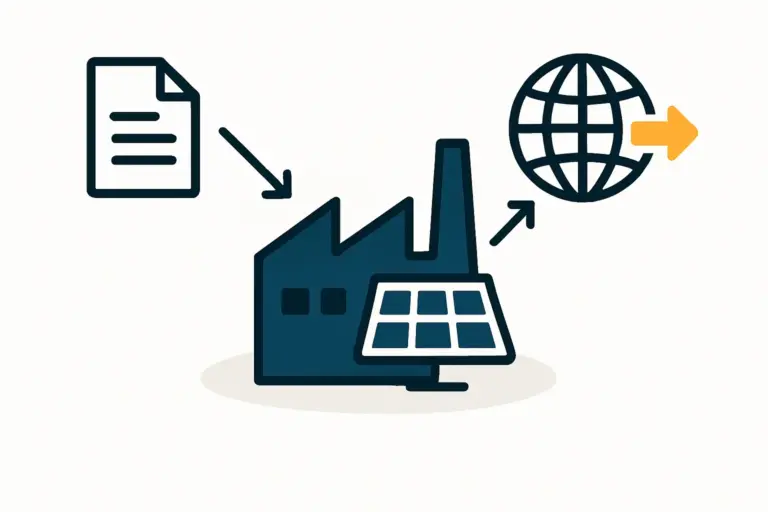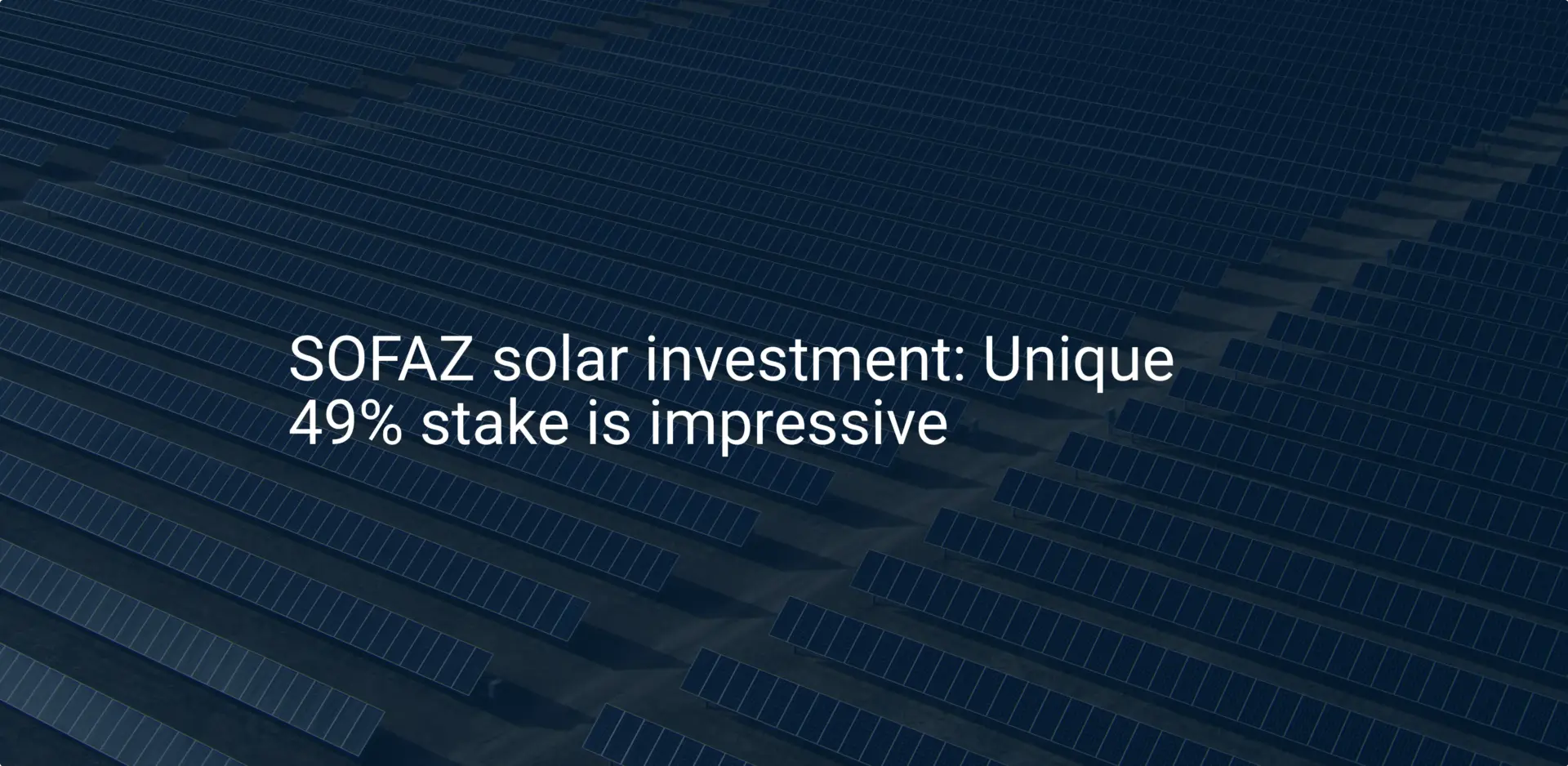As nations worldwide pivot toward renewable energy, some markets offer a unique combination of untapped potential and government support. Azerbaijan is one of them. With ambitious national targets and a clear reliance on imported solar technology, the country presents a significant opportunity for entrepreneurs ready to establish local solar panel manufacturing.
Table of Contents
Understanding Azerbaijan’s Solar Energy Potential
Azerbaijan’s solar market is built on its abundant natural resources. The country has an immense technical solar energy potential, which the International Energy Agency (IEA) estimates at around 23,000 megawatts (MW). This capacity is further bolstered by a favorable climate, with most regions receiving between 2,400 and 3,200 hours of sunshine annually.
This vast potential isn’t just a theoretical figure; it’s the bedrock of the government’s national energy strategy, creating predictable, long-term demand for solar modules. For a manufacturer, this translates into a stable and growing domestic market.
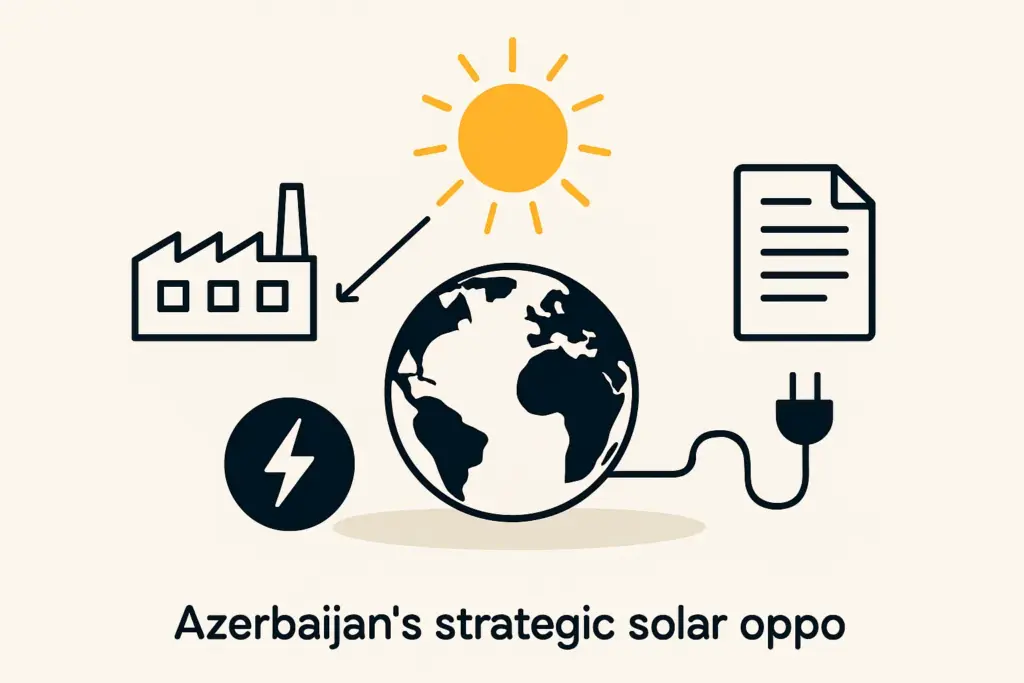
The Driving Force: Government Policy and Legal Frameworks
Investor confidence hinges on strong government commitment, and Azerbaijan has established a clear policy direction to encourage renewable energy development. The nation has set a formal target to increase the share of renewables in its installed power capacity to 30% by 2030.
This ambition is backed by a solid legal structure. Key developments include:
- The Law on the Use of Renewable Energy Resources: Approved in 2021, this legislation provides the legal basis for foreign investment. It establishes a framework for competitive auctions, land allocation, and grid connection, creating a transparent process for energy project developers—the primary customers for solar panels.
- International Commitment: By hosting major international events like COP29, Azerbaijan signals its dedication to the green energy transition on a global stage. This commitment helps secure international partnerships and bolsters the long-term stability of its renewable energy policies.
These initiatives are designed to attract investment for large-scale projects like the 230 MW Garadagh solar plant, all of which require a steady supply of solar modules.
The Investment Climate: Financial Incentives for Manufacturers
Beyond strong policies, Azerbaijan offers tangible financial incentives for manufacturers. A key example is the investment promotion certificate, available through the Ministry of Economy.
For entrepreneurs looking to build a production line, this certificate provides substantial advantages. Holders are often granted exemptions from certain taxes and—critically—from customs duties on imported machinery and technological equipment. This directly reduces the initial capital expenditure required to set up a modern solar module factory.
Furthermore, the government’s use of Power Purchase Agreements (PPAs) for large-scale solar farms creates a predictable revenue stream for energy producers. This stability, in turn, allows them to commit to long-term supply agreements with local manufacturers.
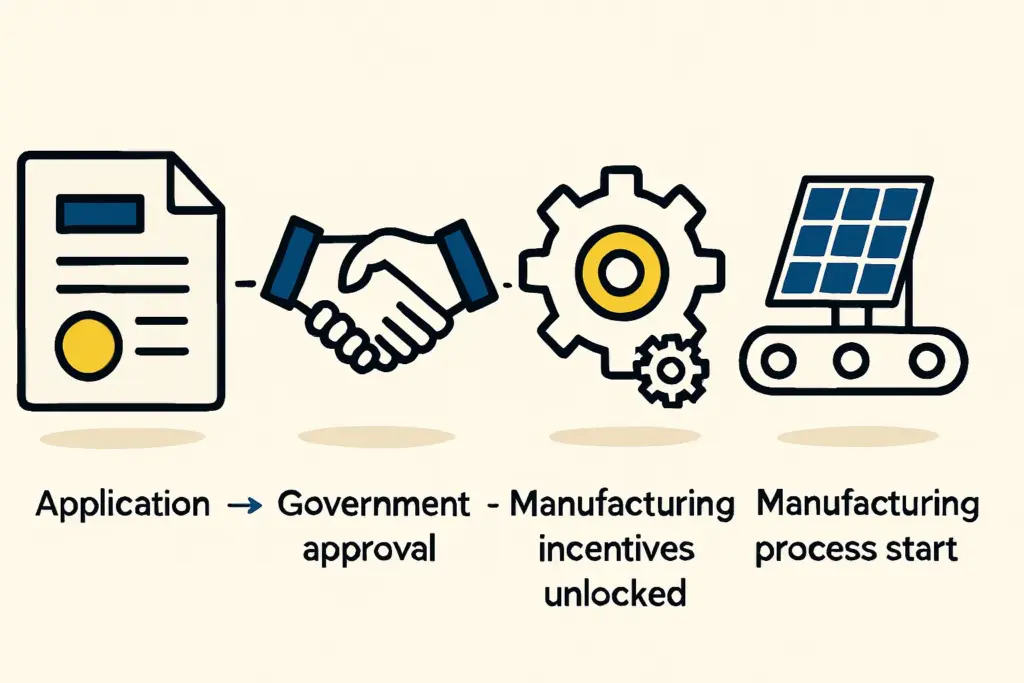
The First-Mover Advantage: A Market Reliant on Imports
Perhaps the most compelling reason to manufacture in Azerbaijan is the current market gap. As it stands, there is little to no large-scale domestic production of solar panels. Nearly all modules for existing and planned projects, including major utility-scale farms, are imported.
This reliance on imports creates a powerful opportunity for a domestic manufacturer to achieve a first-mover advantage. A local production facility can offer significant benefits to project developers:
- Import Substitution: Reduce reliance on complex international supply chains.
- Cost Efficiency: Lower transportation costs and potentially avoid import tariffs.
- Faster Delivery: Provide quicker and more reliable access to modules.
- Regional Export Hub: Serve as a supply base for neighboring countries in the Caspian region.
By establishing a local factory, you aren’t just entering a market; you are creating a foundational piece of the country’s clean energy infrastructure.
Assessing and Mitigating Potential Risks
No investment is without risk. Entrepreneurs considering Azerbaijan should be aware of potential challenges, such as navigating administrative processes and the economy’s historical dependence on hydrocarbons.
However, these risks can be effectively managed. The best approach is to work with experienced local partners or advisors who understand the legal and business landscape. Securing long-term agreements and leveraging official government incentives, like the investment promotion certificate, also adds a layer of security to your venture. The government’s clear legal framework and international commitments are, in fact, designed specifically to mitigate this kind of investor uncertainty.
Want to learn more or need expert help? Visit our free e-course or explore our services. Or, if you’re ready to dive deeper, our Premium Business Plan E-Course offers personalized guidance to get your venture off the ground. Let’s make your solar journey smooth and successful.
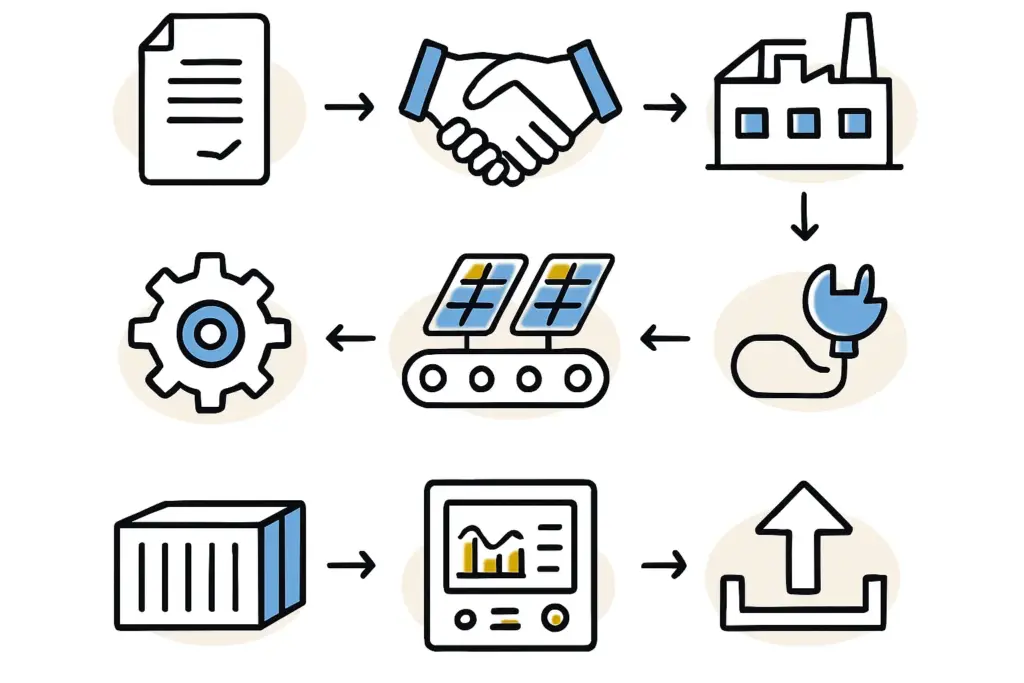
Frequently Asked Questions (FAQs)
Q: What is Azerbaijan’s official renewable energy target?
A: The government aims for renewable sources to constitute 30% of the country’s installed electricity capacity by 2030.
Q: What is the primary financial incentive for a solar panel manufacturer?
A: The investment promotion certificate offers significant benefits, including exemptions from certain corporate taxes and, most importantly, customs duties on imported factory equipment and machinery.
Q: Is there local competition for solar panel manufacturing?
A: Currently, there is a significant gap in the market with very little to no large-scale local production. This presents a strong first-mover opportunity for new entrants.
Q: What law governs foreign investment in renewable energy?
A: The “Law on the Use of Renewable Energy Resources in Electricity Production,” passed in 2021, provides the primary legal framework for developing projects and securing investments.

